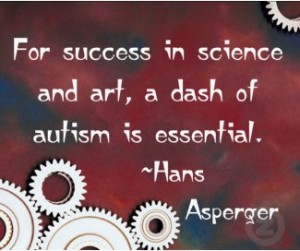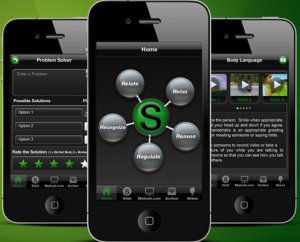Parenting Teens with Asperger’s
The Challenges of Asperger’s
Asperger’s syndrome is a developmental disorder that is categorized as an autism spectrum disorder (ASD). While getting help for your child early on in his life will help him cope with the typical signs and symptoms of Asperger’s, some issues will continue to persist as he grows into young adulthood. Teens tend to identify themselves as part of their group of friends. But a teen with Asperger’s can have trouble relating to other people. Other kids may not empathize with your child’s struggles, and this may cause him to feel isolated, frustrated, and emotionally drained. Your teenager may feel particularly overwhelmed as he begins to consider dating.
In addition to emotionally supporting your Asperger’s teen and building up his confidence, continue to take him to speech therapy sessions. Your teen’s speech-language pathologist (SLP) can help him learn social skills and effective communication methods.
Communication Tips
Talk to your teen’s SLP about the most effective communication methods for him. If your teen hesitates to engage in conversations with you, try taking a walk with him and talking side-by-side instead of face-to-face. Avoid overwhelming your teen with information. Talk about one thing at a time. If your teen is hesitant to communicate with his peers, encourage him to use email, texting, or even old-fashioned letters. This may help him work on his communication skills without feeling stressed out about a face-to-face interaction.
As your teen begins to gravitate toward the dating life, encourage social interaction in a structured, chaperoned environment. (And it’s always a good idea to talk to the other teen’s parents about your child’s communication issues so that there are no misunderstandings.)
Group Therapy
Your teen’s SLP might recommend group speech therapy. It might take the place of one-on-one sessions, or your teen might benefit from a combination of approaches. Structured group therapy can be particularly helpful for teens with Asperger’s because it helps them to adapt to various social situations and learn how to communicate within the parameters of social expectations.
An article from the Asperger’s Association of New England’s website describes a teen “adventure group.” This is a group for teens with Asperger’s. However, instead of sitting in a circle, practicing conversation skills, these teens go out on brief excursions. This allows them to work on social interactions in a variety of settings – from neighborhood walks to weekend nature trips.
If your teen is a bit hesitant to join a group, encourage him to take baby steps. He might feel more comfortable joining an online support group for teens with Asperger’s. Check the Autism Support Network for online resources and for resources in your area. You might also look for a summer camp or similar program in your area that is specifically for children with Asperger’s.
There’s an App For That
Just as apps can help younger children build vocabulary and practice articulation, teens with Asperger’s may also benefit from a little electronic help. For example, Sosh is an app developed specifically to build pragmatic language skills and social skills in teens with Asperger’s syndrome. (It also has an accompanying book.) This app is both instructional and interactive. One of the many hurdles that your teen likely faces is difficulty understanding abstract language or idioms. He might be puzzled if he hears a classmate declare that he is “so hungry he can eat a cow,” for example. With this app, your teen can enter a slang phrase that puzzles him to find the real meaning behind it. He can also make a note of how he reacted to the language and how he might react the next time he hears it.





